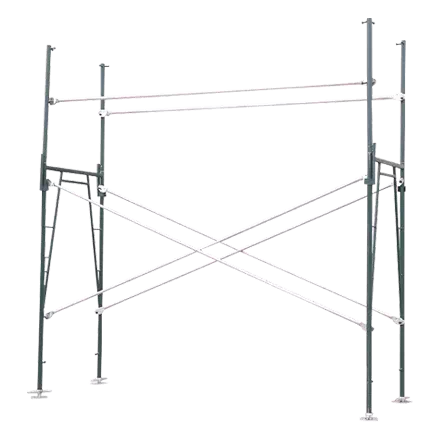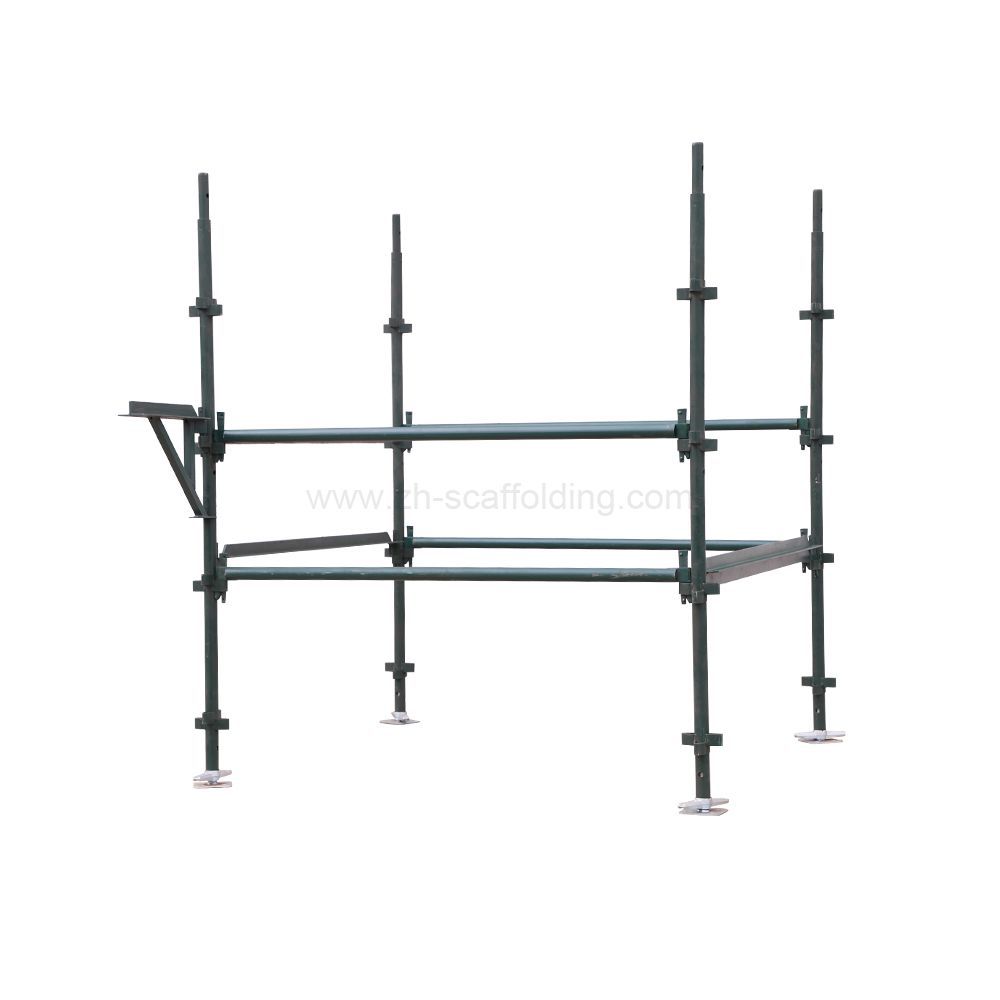Which type of scaffolding do you need?
In addition to construction, there is also maintenance and repair tasks when it comes to buildings. Contractors choose scaffolding systems depending on the type of work they have at hand – this article explores the options on offer.
Steel Scaffolding
Steel scaffolding is made up of steel tubes which makes it quite a robust scaffolding system. Such a scaffold can be used for work on a building’s exterior. It can reach great heights without affecting the safety of the scaffold, and it can also withstand harsh weather conditions. It can carry heavy loads therefore increasing efficiency and saving time.
Suspended Scaffolding
As the name suggests, suspended scaffolding refers to a scaffold system that hangs from the ceiling of a building. These scaffolds are normally used for interior projects, such as painting, electrical work, repairs, etc. They can reach great heights and complete the work by employing a quick and efficient scaffold that is easily adjusted according to the situation.
Mobile Scaffold
Mobile scaffold is set up on castors/wheels and can be easily moved from one spot to another. Its portability makes it an excellent choice for tasks that require frequent change of location. Painting, plastering, electrical work, etc are usually spread over a large area for which mobile scaffolds offer the perfect solution.
Trestle Scaffolding
The working platform in a trestle scaffold is supported by tripods or movable ladders and it can reach a height of up to 5 meters only. Trestle scaffolds are appropriate for light duty work – including painting and repairs – where the ceiling is not higher than the height this scaffold can reach. Because the scaffold’s legs are adjustable, the height can be increased or decreased to a certain degree.
Cantilever Scaffolding
Cantilever scaffolding uses needles to support the work platform. Needles are taken out from holes in the wall of the building under construction. These scaffolds are used in situations where the ground surface cannot support a scaffolding standard, when the wall is close to the ground that is free of obstacles, and when work is being performed on the upper part of the wall.
Kwikstage Scaffolding
Kwikstage or quick stage scaffolding is an extremely versatile scaffolding system that can take any shape. In today’s world where people keep coming up with unusual ideas and forms for buildings, kwikstage scaffold provides a simple solution to achieve the objective. It is able to mold itself to the shape of the structure whether it is angular or arching.
Cuplock Scaffolding
This is yet another adaptable scaffolding system that allows multiple designs and shapes to be built. Cuplock scaffolds can be employed in the construction and maintenance of simple domestic buildings as well as complex structures. It is also highly useful in the area of industrial maintenance.
Conclusion
There are so many different types of scaffolding systems available in the market, and the systems can further be adjusted according to the nature of the project. Contractors may even employ a combination of scaffolding systems to complete the different parts of their assignment. The most important step is to assess the project first and then choose a scaffolding system accordingly.
Based in Tianjin, China, Zhonghong (Tangshan) Construction Engineering Co., Ltd. is a leading manufacture of scaffolding. We are specializing in export scaffolding and scaffolding accessories, including door scaffolding, disc scaffolding, aluminum scaffolding, pull rod, steel shoring, aluminum shoring, iron pedal, all-aluminum pedal, aluminum wooden pedal, and scaffolding accessories. Our products are mainly exported to Europe(France, Spain, Italy, England), the US and Mexico, and are unanimously recognized by all our customers.



评论
发表评论